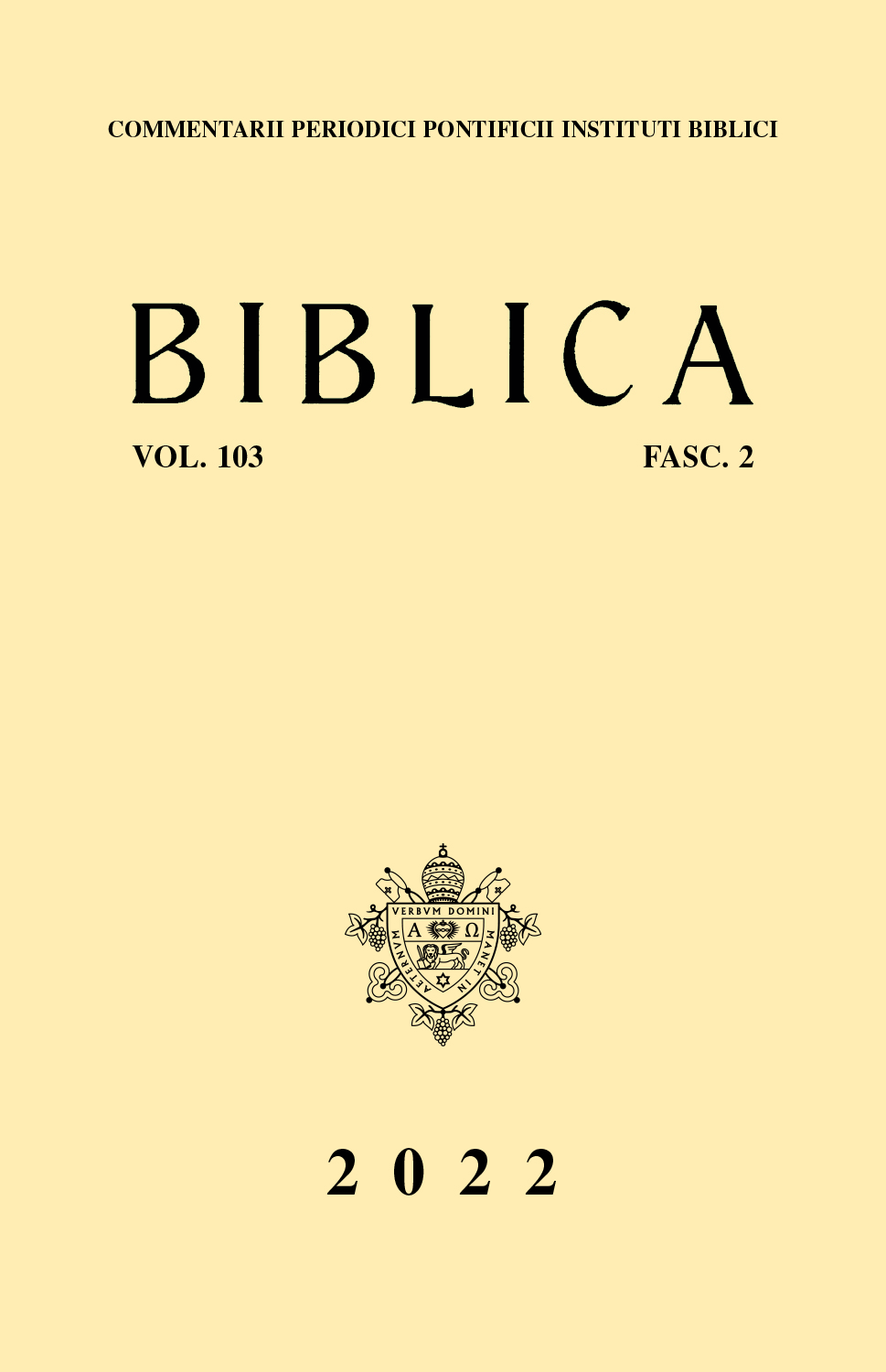 previous article in this issue previous article in this issue | next article in this issue  |

Preview first page |
Document Details : Title: A Brief Discussion of the Difference between Human and Divine חמה Author(s): GRANT, Deena Journal: Biblica Volume: 91 Issue: 3 Date: 2010 Pages: 418-424 DOI: 10.2143/BIB.91.3.3188875 Abstract : The term, חמה, is a frequent descriptor of anger in the Bible. Notably, its syntactic context depends on whether חמה describes human anger or the anger of God. The syntax of human חמה highlights the experience of being aggrieved whereas the syntax of divine חמה emphasizes the consequence of provocation. As such, human חמה tends to be the subject of intransitive verbs and the object of passive verbs that describe the experience of being provoked. By contrast, divine חמה tends to be the object of transitive verbs and the subject of passive verbs that describe God’s reprisal. Additionally, divine חמה occurs as part of the curious construct 'cup of חמה'. We believe that these observations reflect an underlying struggle to reconcile the anthropomorphic idea of an emotional God with an omnipotent and invulnerable deity. |
|


